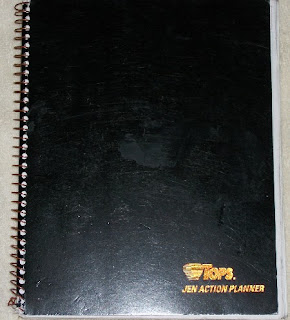1. When you download an article, give it a file name that includes the author, year, and something about the topic. Do not give the file a generic name like “community colleges” or “mathematics”.
2. If you scan or photocopy a book chapter (be careful to obey the copyright laws and not copy too much!), write on the copy the title, author, and year of the book it came from. Better yet, scan/copy the cover page of the book that has the title and author. If you do not do this, you will have a pile of chapters with no way of telling what book they were in or who the book editor is.
3. Don’t wait 7 years to organize the articles you have printed. If you print articles without organizing them, you may find that you have printed exactly the same article 4 times. (Of course, there are other, better, reasons not to wait 7 years….you do want to finish your paper someday!)
4. If you read a research article, write a paragraph about it either while you are reading it, or immediately afterward. If you do not capture your thoughts at the time of reading, you will read it a year later, thinking it is a brand-new article (until you discover your highlights and notes in the margins of page 3). Writing a dissertation takes long enough without duplicating work!
5. Use hanging folders to organize articles, not regular file folders. If you use file folders without putting them inside hanging folders, all the folders slide down into the bottom of the file box and won’t stand up properly. This makes it hard to find things.
6. If you print an article, immediately put it into a folder with a descriptive label, even if you don’t think the article will be relevant to your dissertation. It is still good to know what’s where! And it is far more satisfying to have a large box of neatly filed and organized useless articles than to have a bunch of useless articles in a pile in the corner.
7. Invent a good way to organize your downloaded articles instead of stuffing them into electronic folders labeled “articles already printed”, “articles may or may not be useful” and “articles to be printed”.
8. Before writing too many random paragraphs that are marginally related to your topic, come up with a plan for organizing your lit review. This will hopefully keep you from having too many articles on one subtopic and none at all on other important subtopics.
9. Buy a good laser printer and don’t feel guilty about using it. The price of toner and an occasional replacement drum is small potatoes compared to the cost of graduate school.
10. Don’t buy cheap thin paper. It wrinkles up when you try to print dense text on both sides. Graduate school is stressful enough without adding preventable stress sources!



